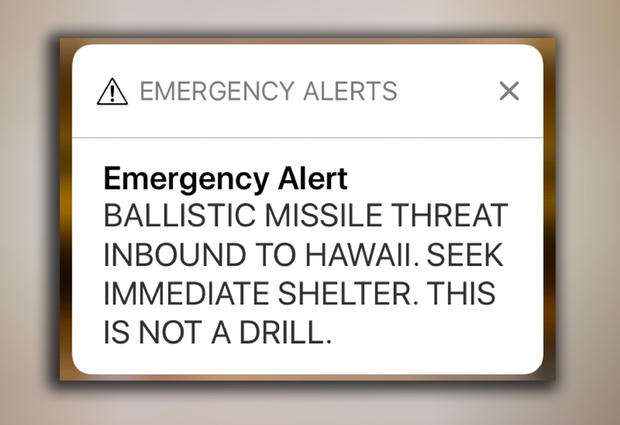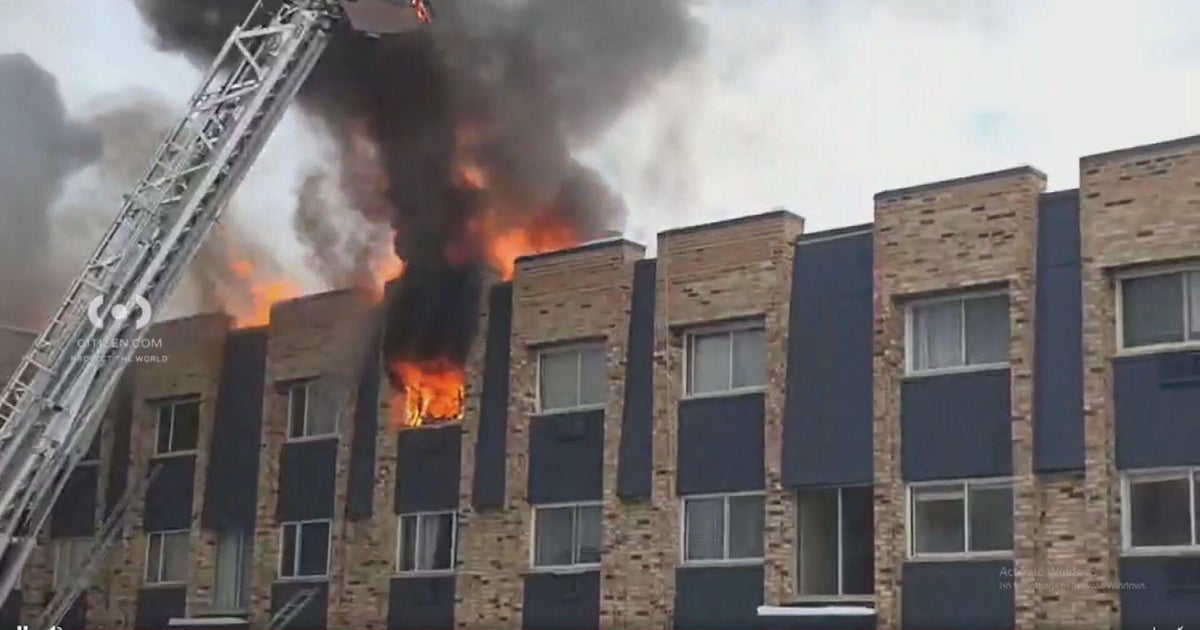Hawaii's false missile alarm shines spotlight on alert systems
WASHINGTON -- For members of the generation raised during the Cold War, the threat of a nuclear attack was ever-present.
But today's warheads are many times more powerful and deadly, and information comes faster than ever, raising the risks of a panicked public. Analysts call this the nightmare scenario -- a false alarm that triggers accidental nuclear war.
"We need to have some sort of authentication system. We have to also look at who's authorized to launch these particular alerts in what particular situations," said Bruce Alexander, a national security expert.
False alarms, like the one sent across Hawaii over the weekend, are nothing new. In 1971, the North American Aerospace Defense Command, or NORAD, sent an erroneous teletype to thousands of broadcast stations, activating the Emergency Broadcast System to announce the United States was under nuclear attack.
Then in 1979, computers at NORAD headquarters detected what appeared to be a massive Soviet missile attack. The U.S. went on high alert, but the threat was actually a war game simulation that had been mistakenly loaded into NORAD's computers. Officials had just minutes to decide whether the warning was accurate -- and whether or not to retaliate.
"The overriding concern right now is the threat of North Korea," said Alexander. "So in this case, minutes really do matter, given the proximity that they have and the ability to respond or prepare for that."
In the case of a true emergency, a wireless alert sent to the public could come from national, state or local authorities, all of whom are supposed to have had training with the Federal Emergency Management Agency (FEMA). In the case of the Hawaii alert, FEMA says it's investigating what happened in order to prevent it from happening again.
The current emergency alert system has been in place since 2012. Experts say that better training and more stringent controls can prevent false alarms. They say it's better that we know of the problems because of a false alarm, rather than a failure during an actual event.








